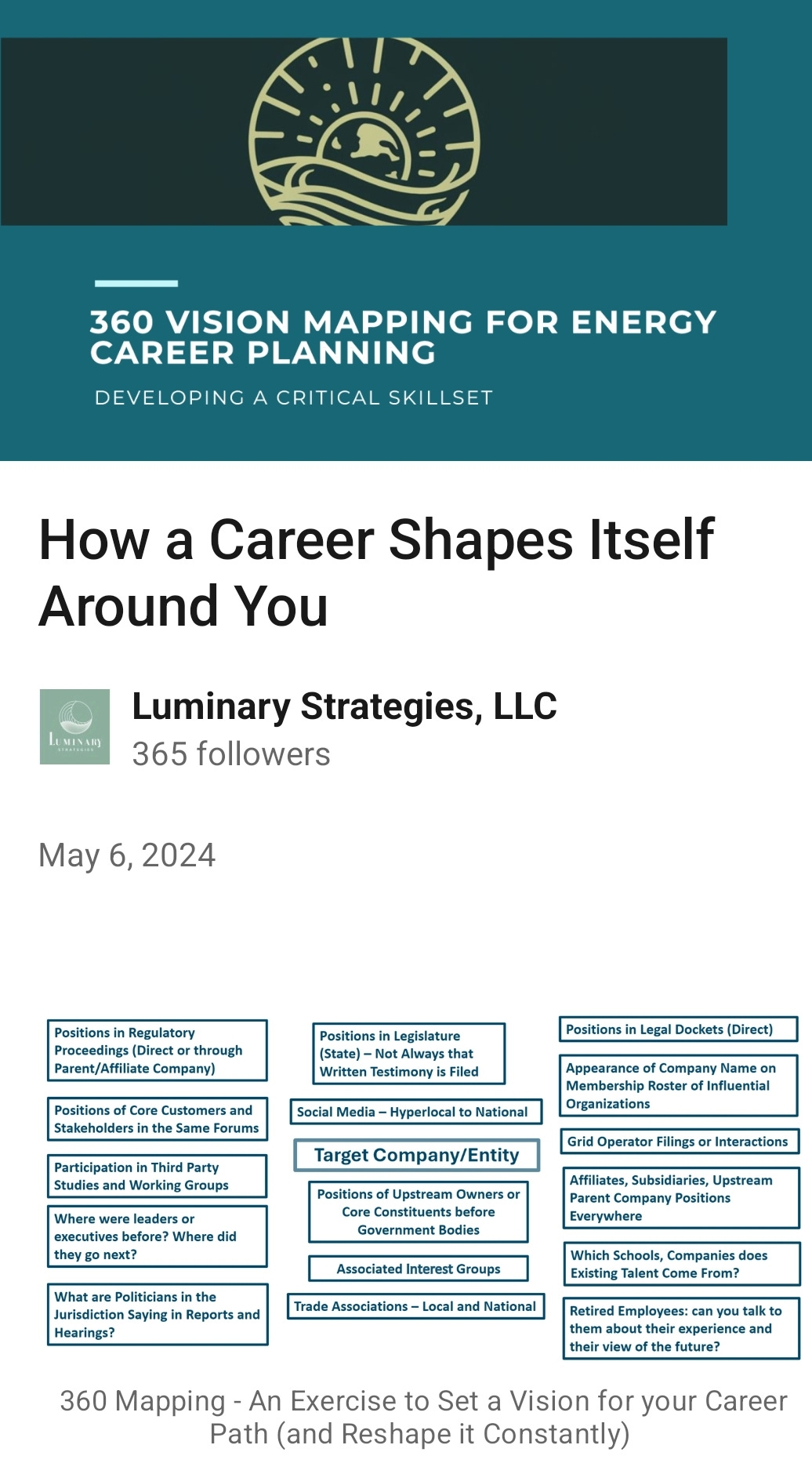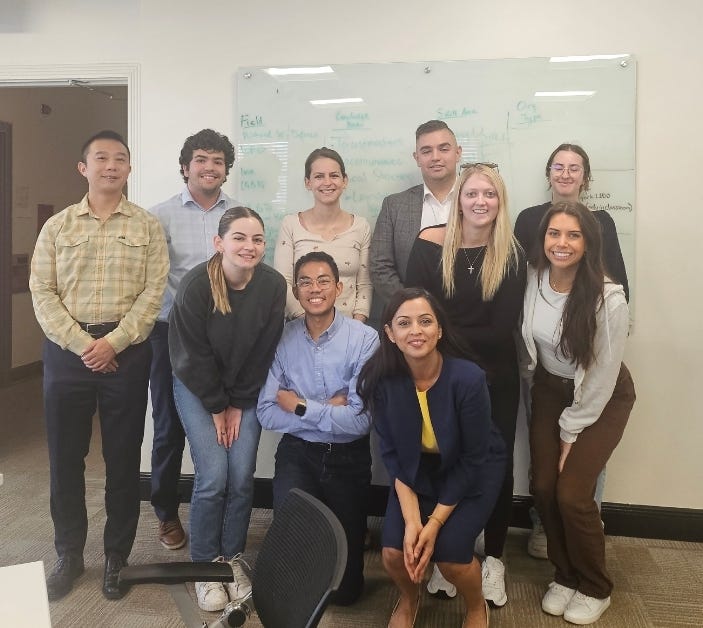Happy (and Hired) as a Policy Professional
Career Lecture at LBJ School in Washington DC - October 2024
I recently had the pleasure of joining a cohort of graduate students from the University of Texas at their semester in Washington, DC. The purpose of our talk was to dig into the success drivers for a scintillating and rewarding career as a policy professional. The content was as organic and contextual as the makeup of the students in the room. These lectures should always be customized to fit the needs, curiosities and sense of purpose that drives the students who are your audience.
We started this lecture by noting the areas in which students believed they would like to work when they graduate. The fields they identified were as diverse as they were impressive. Each field area however, had commonalities in necessary skill sets. We reviewed these shared features in detail: particularly focused on what skill sets students would need to thrive in any of these fields, what knowledge areas would be helpful to accelerate their unique competence and gain recognition, and where they could acquire employment.
The first segment of skill sets we discussed, were basic knowledge areas.
Public Speech
Legislative Analysis & Drafting
Vernacular Macroeconomics
Visual Representation Skills: Speaking in Formulas and Diagrams
What surprised students the most was how integral each of these knowledge areas was to every single policy space which they wanted to work in. Even for the students who have no interest directly in government relations or lawmaking, they learned that the skills acquired in knowing how to drafting and read laws, apply to every single part of the governance system for making and using policy: writing internal compliance guidelines, writing programs, writing implementation rules to turn policy into action, and of course, drafting organized written content to bring complex policy architecture to life. Each of these, is a critical job skill for early policy professionals who may be in a role where they need to set up rules, codes, handbooks, financial guidelines, or operational guidelines for any sort of program. Those skills go a step further when a policy making professional needs to take complex rules and ingest them into memorandum and verbal explanations to convey complexity quickly to their own supervisors, team members, and ultimately their management or core stakeholders. These tasks come more easily to a policy professional who has invested in learning the art of creating, translating, and accurately summarizing complex legislative (and regulatory) documents.
The second skill area discussed related to becoming an unassailable advocate. Whether advocacy occurs inside a program (vis a vis team, peers, managers, or key stakeholders), or outside of it with relevant clients, partners, or government entities which need to be convinced, mastery of advocacy is a policymaking and implementation tool set that every professional must have. For those policy students who spend most of their graduate time in data analytics and other scientific courses, the importance of honing these skills cannot be overstressed. Moreso, advocacy is not taught in any graduate level forum with the same repetitive rigor and nuance as it is in law school. So, students learned the core skills which all law students learn, and we talked about practical examples in which those skills will bear fruit in any type of policy position.
Anecdotal passion is a term of art I created to help convey to students in policy classes as the method of delivering with great confidence, complex messages in just a few sentences. Lawyers use this feature for example, in an opening statement to a jury in a complex case. Policy professionals need to be able to deliver complexity within seconds to usually impatient and/or high-risk and low attention span audiences. I used in our discussion the example of meeting with someone very important who has very little time and explained that the details of the facts are never the focus in those interactions. When you are trying to bring this type of person to your side on an issue, that is your opportunity to use a relatable anecdote as an example of broader complexities to explain the subject matter quickly and get an instinctual reaction. This sort of engagement not only drives extreme success — showing you are confident in your beliefs and don't need to prove them — it also drives the creation of affinity and space for the listener to think and enjoy the exercise of being convinced. We also discussed the importance of ensuring that students never enter conversations with senior leaders or stakeholders without fully owning mastery of details by the time they have these sorts of conversations: the more quickly they demonstrate mastery in their interactions, the more likely it is that they will be trusted faster as subject matter experts.
Lastly, we talked about the opportunity to engage in the field areas of interest outside of Washington DC or a typical hometown metropolis. Hunting down a rewarding policy job often means avoiding tropes, high visibility job postings, and formulaic career path planning. Most often, the policy job market’s true potential is hidden within a list of clients of a major lobbying firm, the foundations or entities which support a trade group, the parties who submit comments to a regulator or committee in Congress, or the advocacy or data firms whose work appears in the citations and appendices of major government reports. Winding your way through these resources will widen horizons for a policy job search quite immediately. This is a skill related to another area I discussed on the topic of career planning: preparing your own career opportunity mapping exercise. You can read about that process here: 360 Vision Mapping (How a Career Shapes Itself Around You): https://tinyurl.com/3f9n6ed2
Thanks to the LBJ Center at University of Texas for hosting a great session and to the following students for getting our visual aid off the marker board so we could share it with readers!






